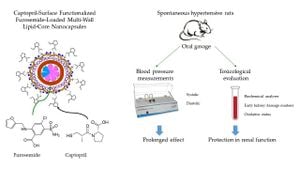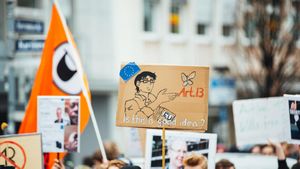Bombril, the iconic Brazilian cleaning products company known for its steel wool, has found itself entangled in financial turmoil, prompting it to file for judicial recovery on February 10, 2025. This drastic move, announced alongside other entities within the Bombril Group, aims to address staggering debts estimated at R$ 2.3 billion, stemming primarily from extensive tax liabilities.
The decision to seek judicial recovery was made during a meeting of Bombril's board, which evaluated the company’s precarious financial situation exacerbated by recent unfavorable rulings from Brazilian tax authorities. These rulings relate to alleged unpaid taxes from transactions involving foreign debt securities (T-Bills) executed between 1998 and 2001, when Bombril was under the ownership of the Italian investment group Cragnotti & Partners.
According to the company's relevant disclosures, Bombril faces “relevant tax contingencies” and indicated the substantial risk of losing current legal battles, which would threaten the positive financial results they had been enjoying. "The current risk of loss in judicial processes poses a threat to the good accounting results achieved by Bombril," stated the company.
The ramifications of this filing are intense. With over R$ 2.3 billion at stake, there are concerns about how these debts might affect Bombril's operational capabilities and relationships with suppliers and financiers. If the company fails to manage its liabilities effectively, it could lead to defaults, potentially jeopardizing business continuity.
Bombril's recent financial performance has shown positive trends, with reports of R$ 56.4 million net profit for the year up to September 2024. Despite this, the towering debt level casts uncertainty over the company's profitable prospects, particularly considering its cash and cash equivalents amounted to only R$ 102.4 million at the end of September. "With the judicial recovery, the company will be able to maintain its operational capacity and adequately restructure its liabilities," Bombril affirmed, indicating their goal of ensuring minimal disruption to their operations.
The filing for judicial recovery aims not just to handle the existing liabilities but also to refine business practices and potentially lead Bombril through another growth phase. The management intends to negotiate debts with creditors swiftly and minimize the impact on rights and operations. This approach reflects the company's commitment to preserving economic value for all stakeholders involved, including customers, employees, and shareholders.
Looking back at the factors prompting this drastic financial maneuver, it’s clear we’re observing the residual effects of policies dating back two decades. The company’s dealings under its previous Italian owners resulted in complex tax obligations which, now being contested, have come back to haunt the current management.
The approach of seeking judicial recovery is often seen as controversial within the business community, with critics questioning the motivations behind such filings. Yet, supporters argue it provides necessary breathing space for companies struggling to weather financial storms.
Bombril’s directors maintain confidence in this process, asserting the opportunity it presents to renegotiate its financial obligations. They aim to come up with solutions to prevent creditor relationships from deterioriating as this could compound their financial strain.
This filing not only marks a pivotal moment for Bombril but also raises significant questions about corporate governance and financial resiliency within Brazilian enterprises, particularly those with legacies tied to past ownership structures.
While the road to recovery may be fraught with challenges, Bombril appears determined to navigate its way through the rough waters of financial restructuring. With optimism, the company reflects on the necessity of this strategy for fostering future investments and growth.
It remains to be seen how this judicial recovery dynamics play out and what it means for the wider market of cleaning and hygiene products. Bombril’s fate could serve as both a cautionary tale and a roadmap for other companies facing similar predicaments.
Through this complex chapter, Bombril aims to emerge with improved operational capacity and healthier debt structure, setting the stage for potential reinvestment and growth opportunities. The future may yet hold promise for this storied brand as it seeks to restore balance and emerge resilient from its financial trials.



